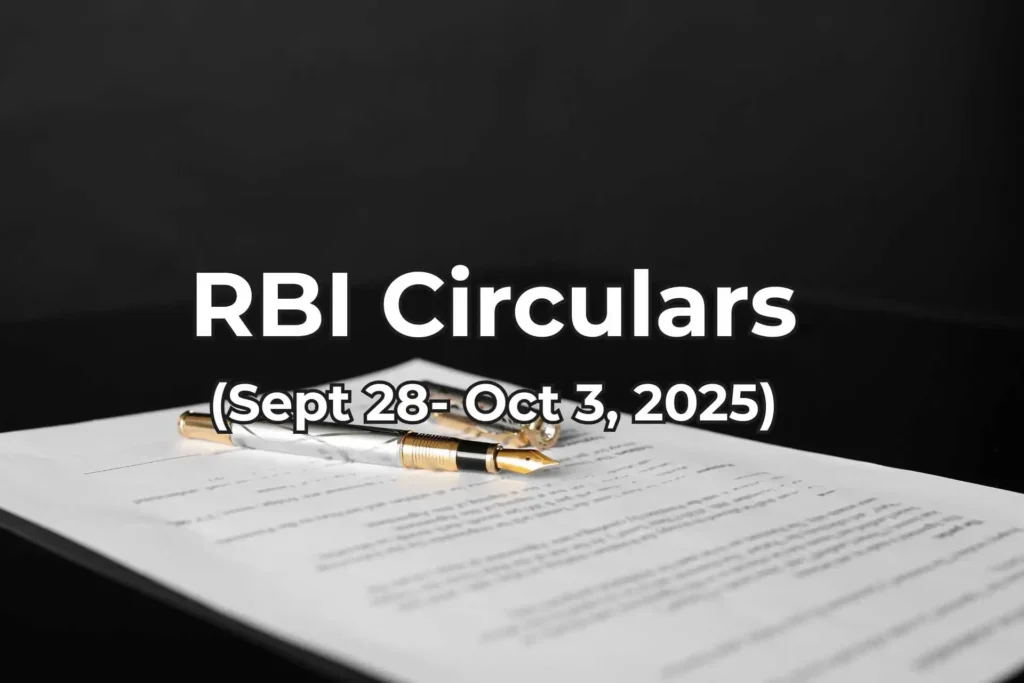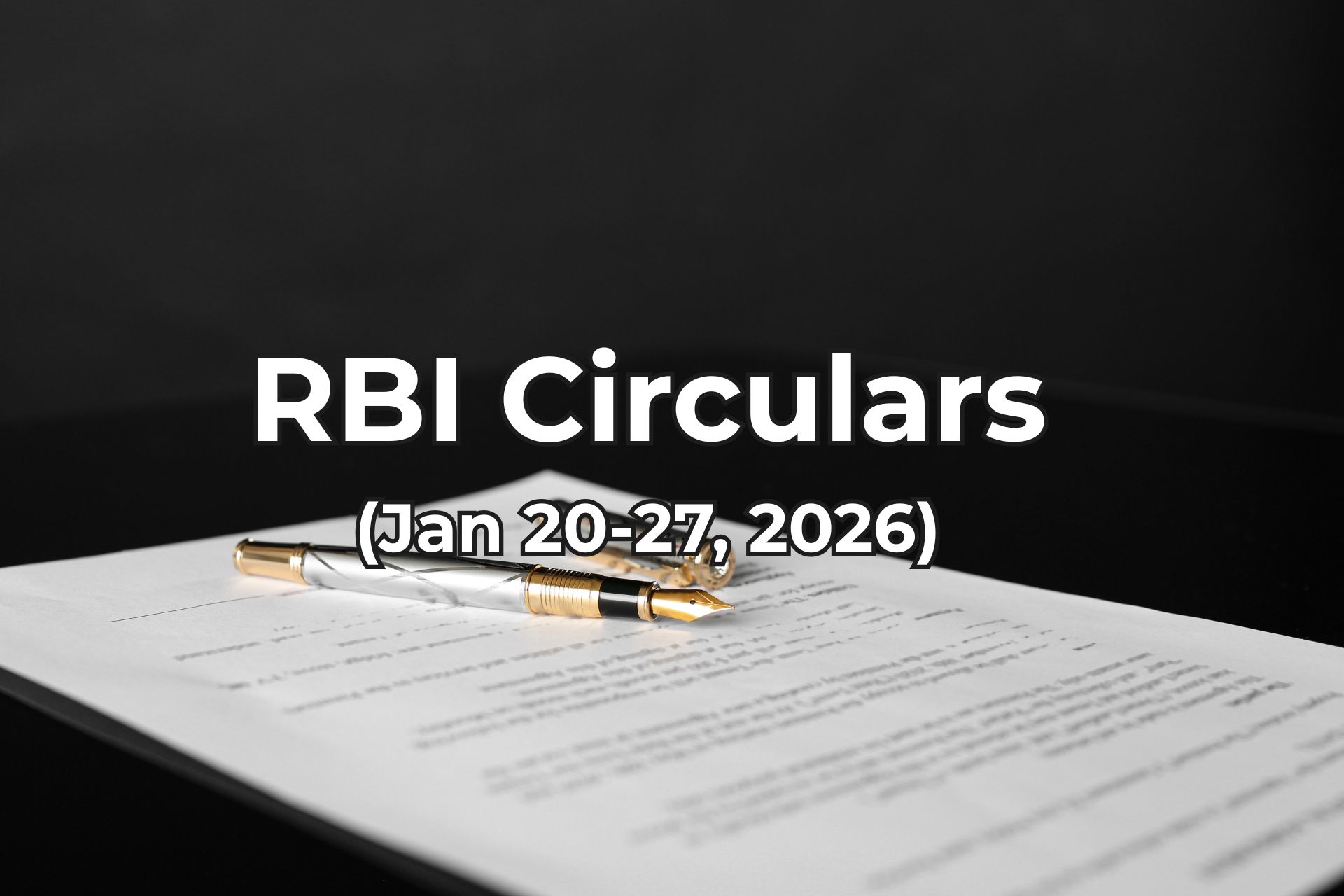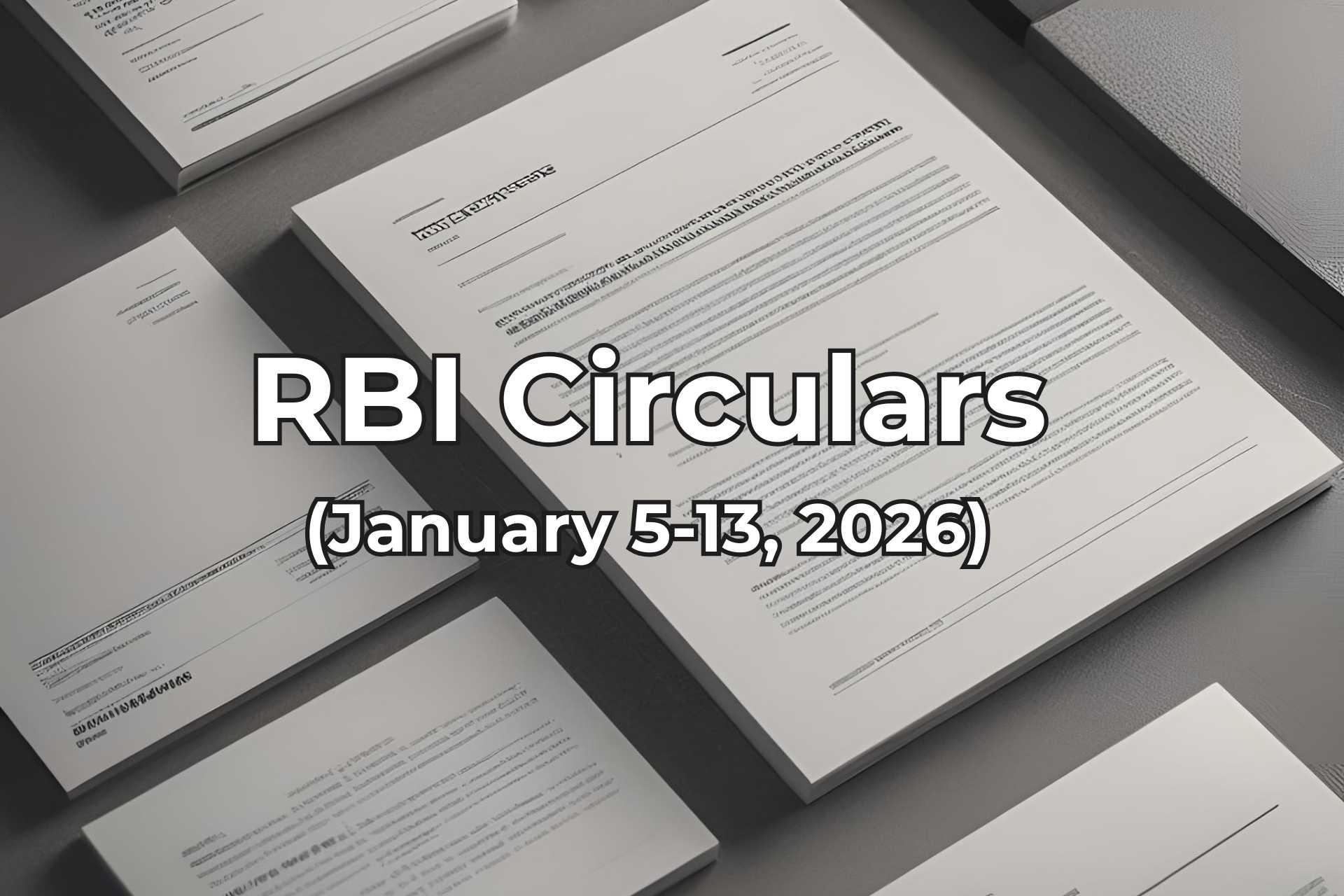We at Finakon track the regulatory changes. We also use AI to create a summary. We are providing a quick overview of the RBI circulars on a weekly basis on our website. The summary is neither exhaustive nor comprehensive. For accurate information, users shall refer to the original circular of the regulator. Finakon shall not be responsible for inferences drawn based on the summary provided.
RBI’s 2025 Amendment Brings Borrower-Friendly Changes
The Reserve Bank of India (RBI) has issued the Reserve Bank of India (Interest Rate on Advances) (Amendment) Directions, 2025, revising key provisions under the Reserve Bank of India (Interest Rate on Advances) Directions, 2016, and related circulars.
Key changes include:
- Flexibility for banks to reduce other spread components earlier than three years for specific loan categories, aimed at customer retention, provided it’s done on justifiable and non-discriminatory grounds.
- Option for borrowers of floating rate EMI-based personal loans to switch to a fixed interest rate, as per the lender’s Board-approved policy. The policy may also define how many times such a switch can be exercised.
- FAQs updated: Certain FAQs on rate resets have been modified or deleted for better clarity and consistency.
These amendments will come into effect from October 1, 2025, under the powers conferred by the Banking Regulation Act, 1949, RBI Act, 1934, and National Housing Bank Act, 1987.
This step aligns with RBI’s ongoing efforts to enhance transparency, borrower flexibility, and fair lending practices across financial institutions.
RBI Clarifies Lending Rules Against Gold and Silver Collateral
The Reserve Bank of India (RBI) has issued the 1st Amendment to the Lending Against Gold and Silver Collateral Directions, 2025, aimed at clarifying provisions and ensuring responsible lending practices in the bullion-backed financing space.
Key Highlights:
- No loans or advances can be granted for purchasing gold or silver in any form — including jewellery, coins, primary gold, or gold-backed financial products such as ETFs or mutual funds.
- Loans against gold or silver are not permitted when such metals are held purely as an investment.
- However, banks and eligible urban cooperative banks (Tier 3 or 4 UCBs) may extend working capital finance to businesses that use gold or silver as raw materials for manufacturing or industrial processing, provided the metals are not used for speculative or investment purposes.
- The updated directions also consolidate older circulars related to bank finance for gold purchases.
These amendments will take effect from October 1, 2025, for entities that have already adopted the Directions.
RBI Issues Revised Directions on AT1 Capital for Scheduled Commercial Banks
The Reserve Bank of India has issued the RBI (Basel III Capital Regulations – Perpetual Debt Instruments (PDI) in Additional Tier 1 Capital – Eligible Limit for Instruments Denominated in Foreign Currency / Rupee Denominated Bonds Overseas) Directions, 2025, applicable to all Scheduled Commercial Banks (excluding SFBs, PBs, and RRBs).
Key Highlights:
- Effective Date: October 1, 2025.
- Revised Eligible Limit:
PDIs issued in foreign currency or rupee-denominated bonds overseas can now be included in AT1 capital up to 1.5% of Risk Weighted Assets (RWAs), based on the latest audited/limited review financials. - Supersedes: RBI’s earlier circular dated October 4, 2021.
This revision underlines RBI’s focus on strengthening the capital adequacy framework of Scheduled Commercial Banks, ensuring alignment with Basel III global standards and reinforcing long-term financial resilience and prudence.
Strengthening Small Finance Banks: RBI Revises AT1 Capital Rules
The Reserve Bank of India has released new guidelines under the RBI (Basel III Capital Regulations – Perpetual Debt Instruments (PDI) in Additional Tier 1 Capital – Eligible Limit for Instruments Denominated in Foreign Currency / Rupee Denominated Bonds Overseas) Directions, 2025, aimed at Small Finance Banks (SFBs).
Key Highlights:
- Effective October 1, 2025 – revised limits apply.
- New Limit:
PDIs issued in foreign currency or rupee-denominated bonds overseas can now qualify for AT1 capital up to 1.5% of Risk Weighted Assets (RWAs) (as per the latest audited/limited review financials). - This supersedes the 2021 circular.
By tightening capital definitions for SFBs, RBI is not just aligning them with Basel III global norms, but also reinforcing their capacity to support inclusive growth while ensuring financial resilience.
Small Finance Banks play a pivotal role in deepening financial access, these capital reforms are another step in balancing growth with stability.
Capital Strengthening for Payments Banks: RBI Revises AT1 PDI Norms
The Reserve Bank of India has notified the RBI (Basel III Capital Regulations – Perpetual Debt Instruments (PDI) in Additional Tier 1 Capital – Eligible Limit for Instruments Denominated in Foreign Currency / Rupee Denominated Bonds Overseas) Directions, 2025, applicable to Payments Banks.
What’s New:
- Effective Date: October 1, 2025.
- Revised Limit:
PDIs issued in foreign currency or rupee-denominated bonds overseas can now be included in AT1 capital up to 1.5% of Risk Weighted Assets (RWAs), based on the latest financials (audited/limited review). - Supersedes: The earlier October 2021 circular.
For Payments Banks, which are at the intersection of digital innovation and financial inclusion, this change ensures capital adequacy is aligned with Basel III standards, strengthening trust in their stability while enabling sustainable growth.
More Time, More Flexibility: RBI Extends MTT Outlay Period
The Reserve Bank of India (RBI) has announced a key relaxation for Merchanting Trade Transactions (MTT) to support smoother trade operations.
Under the revised guideline, the time period for outlay of foreign exchange has been extended from 4 months to 6 months, providing merchanting traders greater flexibility in managing trade cycles and cash flows.
All other directions under the earlier A.P. (DIR Series) Circular No.20 dated January 23, 2020 remain unchanged. The revised instructions are applicable with immediate effect, under the provisions of FEMA, 1999.
This move is expected to ease operational challenges and enhance efficiency in cross-border trade facilitation.
RBI Revises Guidelines for EDPMS & IDPMS Reconciliation
The Reserve Bank of India has announced a review of the reconciliation process for Export Data Processing and Monitoring System (EDPMS) and Import Data Processing and Monitoring System (IDPMS), aimed at easing compliance for small exporters and importers.
Key Highlights:
- Applicability: AD Category – I banks.
- Threshold: Entries up to ₹10 lakh per bill/entry.
- Simplified Reconciliation:
Closure of entries permitted based on a self-declaration by exporters (realisation) or importers (payment).
Invoice/value reductions can be accepted on declaration basis.
Quarterly consolidated declarations allowed for bulk reconciliation. - Charges: AD banks must review charges for handling small-value transactions to ensure they are fair and commensurate.
- No penal charges to be levied for delays in adherence.
- Effective: Immediate.





